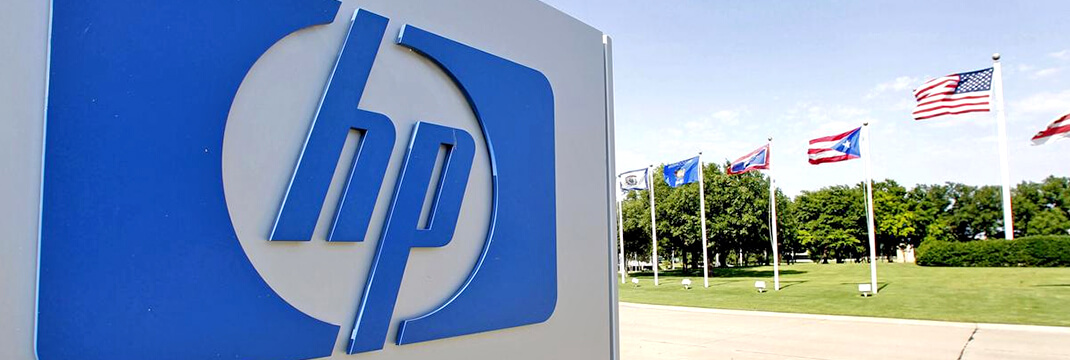
The importance of ethics and deontology in business is undeniable. Nowadays, ethical evaluation and reputation play a significant role in the choice of business partners, application of sanctions, etc. At the same time, by working in an extremely aggressive environment, the moral qualities of the majority of managers become much lower than those of people involved in different spheres of activity. Nevertheless, it is important to note that the actions of the company’s managerial staff, namely the decisions they make, often define the fate of many people. This statement is supported by the contents of the following work, which focuses on the analysis of the case involving the investigation of information leak at Hewlett-Packard (HP).
Hewlett-Packard Analysis
Prior to analyzing the case of HP from the ethical standpoint, it is required to identify the problems the company’s Board of Directors has to face. First of all, they have to deal with consequences of the activities initiated by the chairman of the organization, Patricia Dunn (i.e. the identification of a person responsible for the information leaks). Taking into account that the information on the use of unethical methods of investigation was made public, it is possible to assume that the reputation of HP has sustained significant damage. As a result, the Board of Directors will have to take actions aimed at the restoration of credibility of their company in the eyes of the partners, investors, and consumers. Moreover, the data leak has provided an insight into the operative and strategic plans of the company, which benefited its competitors, allowing them to take necessary countermeasures in advance. Thus, the Board of Directors will have to revise and adjust the strategy of the enterprise. Finally, the fact that there are the employees that are willing and able to violate the corporate code of ethics calls for major changes in the managerial staff of the firm (Lawrence et al., 2008). As a result, the Board of Directors will have to deal with the problem of searching for the new candidates for the respective positions, which is not an easy task, especially in case of top management.
Naturally, the decisions made by Mrs. Dunn were made as a response to the certain events that took place in the company. At the same time, it is possible to note that each time she was presented with several options. However, the choices she made at the turning points were not always right. The first of such events took place on February 7, 2006, when the decision regarding the firing of Carly Fiolina was made. It is clear that she has been simply used as her dismissal was connected not only to the fact that her name appeared in the article with the leaked information, but also to the fact that she stood up against the company’s policy (Lawrence et al., 2008). As one of the members of the company’s Board of Directors, Mrs. Dunn could have requested a thorough investigation of the case, since the evidence allowed perceiving several other people as the primary suspects. However, she decided not to investigate the matter more thoroughly, preferring to ignore the truth.
Another turning point was reached after the discovery of another major information leak. In this case, Mrs. Dunn had to make a decision regarding the approval of the activities of the investigation team (Lawrence et al., 2008). By taking into account that the measures involved shadowing and phone recording, it is possible to say that she had the option to make a request regarding the change of the data gathering methods. Nevertheless, Mrs. Dunn fully supported the actions of the investigators, even despite the fact they violated the corporate code of ethics and even the law.
The final turning point was reached in September 2006, with Mrs. Dunn facing the Congress after the information regarding the investigation has been made public (Lawrence et al., 2008). She had to decide whether to acknowledge herself guilty of violating the company’s code of ethics or not, ultimately choosing the second option. Naturally, such decision is wrong as it contributes to the image of the irresponsibility of the firm’s top management, showing the society that nothing will be done to change the situation. In this case, Mrs. Dunn should have acknowledged that she was wrong despite the fact she was acting in the interests of the firm, which would have allowed HP to retain some of its credibility (Shaw, 2016). Thus, in all cases, it would have been better for Mrs. Dunn to use the ethical theory of principlism, which incorporates several principles. The first of them is autonomy, i.e. the ability to make decisions without relying on the opinion of the others. Secondly, there should be a principle of nonmaleficence, which means doing no harm to people, such as the intrusion into their private life. Additionally, there is a principle of beneficence, which foresees striving to do good both for the company and its employees. Finally, there is justice, which is considered as the ability to treat people equally (which was not demonstrated in case of Mrs. Fiolina), and follow the rules (Birsch, 2014). By using this theory, it would have been possible to avoid the nationwide scandal around HP or at least make its consequences less severe.
Invite your friends and get bonus from each order they
have made!
By considering the facts provided above, it is possible to say that the actions taken by the HP’s chairman and legal department of the company, as well as the investigators, cannot be considered moral. In particular, they have prioritized the well-being of the organization, without paying attention to the interest of individuals involved in the case. For example, the data gathering methods that were utilized by the investigation team and, most importantly, approved by the chairman, were based on the intervention in the private life of the other people (i.e. stalking, phone recording, etc.), which is not only unethical but also punishable by law. Moreover, some of them were not involved in the case (e.g. Mrs. Keyworth), making the described course of actions even more questionable (Lawrence et al., 2008). Thus, it seems that these people have relied on the ethical theory of utilitarianism in their activities, which places the outcome of a particular situation above everything else. In other words, if the final outcome brings benefits to people (i.e. has a high utility), it does not matter that the means to achieve it are immoral. The result justifies the means required to obtain it, meaning that in the end they are not perceived as unethical (Birsch, 2014). As a result, the sight of the corporate values was lost completely in the course of the investigation, resulting in devastating outcomes for HP.
By taking into account the facts provided above, it is possible to assume that under the circumstances described in the case, the HP’s chairman and legal department of the company, as well as the investigators, should have used the ethical theory of humanism. It prioritizes the value of human beings rather than an outcome of a particular activity and, most importantly, relies on critical thinking and evidence (Birsch, 2014). In particular, it would have been possible to hold a conversation with the suspects, emphasizing the severity of the situation in the company and the effects the information leak may have in the future. This statement is justified by the fact that the primary suspect (Mr. Keyworth) was open to communication with the investigators, meaning that there was no need to resort to the unethical measures described above (Lawrence et al., 2008). Moreover, despite the fact that the primary goal of the investigation was to ensure the well-being of the company, it is worth noting that such result cannot be achieved without considering the interests of its employees. Without doubt, it is difficult to say whether the humanistic approach would have improved the efficiency of the investigation, as there is always a possibility that people would not acknowledge their guilt. However, the use of the theory of humanism would have prevented the immoral actions and, therefore, their disclosure in the media. As a result, the reputation of HP would have never sustained significant damage, making it easier for the company to recover from the crisis (Shaw, 2016). In particular, the anti-crisis measures would only include changes in the top management of the enterprise, as well as the adjustment of its strategy without excessive expenditures associated with public relations.
Finally, after the disclosure of the information on the investigation (i.e. in September 2006), new company’s CEO (Mark Hurd) should take the following actions. First of all, it is necessary to take a clear, unambiguous position in relation to the crisis in the organization (i.e. disapproval of the methods used by the chairman). At the same time, it is imperative to be flexible enough to react to any changes while adhering to the describe position. The CEO should also bring the senior management of the company to action, to demonstrate their participation in the anti-crisis measures (Anthonissen, 2008). At the same time, one must activate the support of the third parties, namely the well-known analysts, the leading information channels, and the respected independent scientists to increase the credibility of the company in the eyes of the stakeholders.

Top Writer Your order will be assigned to the most experienced writer in the relevant discipline. The highly demanded expert, one of our top 10 writers with the highest rate among the customers.
Hire a top writer for $4.40Additionally, the CEO should organize the involvement of managers in company’s activities, meaning that they must participate in case the situation is critical. There is also a need to centralize the communication. In particular, only one person must be responsible for the dissemination of information, as well as the making of statements on behalf of the organization. At the same time, it must receive help from a team of specialists. It is also required to cooperate with the media despite the fact that some journalists can behave defiantly. Nevertheless, they must be treated as friends, as well as provided with the company’s representative views on the situation. In addition, the CEO should not ignore the employees since keeping them aware of the situations ensures the normal functioning of the organization. Additionally, there is a need to consider the situation in a broad perspective, since the low activity at the beginning of the crisis and the overreaction in case of its development can be quite expensive for the company. Finally, the CEO must think about the positioning of the organization after the crisis in advance. It is necessary to take responsibility, if necessary, but then quickly focus on what is being done, rather than on errors (Regester & Larkin, 2008). All these actions will allow lowering the damage to HP’s reputation, demonstrating its partners, investors, and customers that the company is determined to correct the mistakes of the past.
Conclusion
In conclusion, it is possible to say that the process of investigation of the information leak at HP involved a wide array of wrong and unethical decisions made by the company’s executives and investigators. As a result, the organization found itself at the center of a nationwide scandal, with its reputation sustaining severe damage. At the same time, many of the problems described above could have been avoided in case of application such ethical theories as principlism and humanism. Thus, the events that took place at HP demonstrate the importance of ethics and deontology in business, since the failure to comply with the requirements they present may result in devastating outcome for the company, ruining its image and increasing its expenditures. In the long-term perspective, the unethical and immoral actions of the enterprise’s representatives may ultimately lead to its disappearance from the market.



